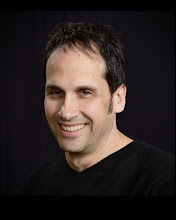"Taking a company from a start-up to a $100 million company is a different job than trying to double that $100 million business," said Fresneda. "It takes some of the same vision, ability, and desire, but you can't do that while worrying about the day-to-day operations of the company."
That seems like a fair statement.
Andersson's announcement came after the company announced a successful fourth quarter, for which it reported 7% revenue growth (13% measured in local currencies) over the 2009 fourth quarter and a 73% growth in operating profit. For the year 2010, revenue growth was nearly flat, with ReadSoft reporting a 6% growth when measured in local currencies. Operating profits were up 93% to almost $9 million. Clearly, however, when compared to Kofax's reported 20% growth in software revenue for the final six months of 2010, ReadSoft was losing some market share to its top competitor.
While 2009's 6% growth could be attributed to the economy, flat growth in 2010, while your competition is growing well into double-digits, is tough to swallow.
Andersson has certainly done a great job at ReadSoft for a number of years. ReadSoft was clearly an innovator in document-capture-based invoice capture systems, as the first ISV to realize how important a workflow piece was to the invoice equation, when it bought the SAP-experienced development organization Ebydos. But, in recent years, the rest of the market has been catching up, and ReadSoft hasn't been able to answer with another big move. Maybe Andersson felt it was time to give someone else a shot at doing that as CEO.
There's a lot of speculation I can make, and I'll do some of that in next week's premium issue, as well as have some more insights from Fresneda. For now, we wish Jan and the rest of ReadSoft the best with this transition. As a $100 million software vendor with a worldwide footprint and multiple Global 200 accounts, this is not an organization in trouble, but if ReadSoft wants to keep up with the aggressively moving Kofax, it's probably a good time to make some changes.



